Thoughts and Statements of Indian Independence era leaders on Communists criticising the Constitution of India
25-Nov-2022
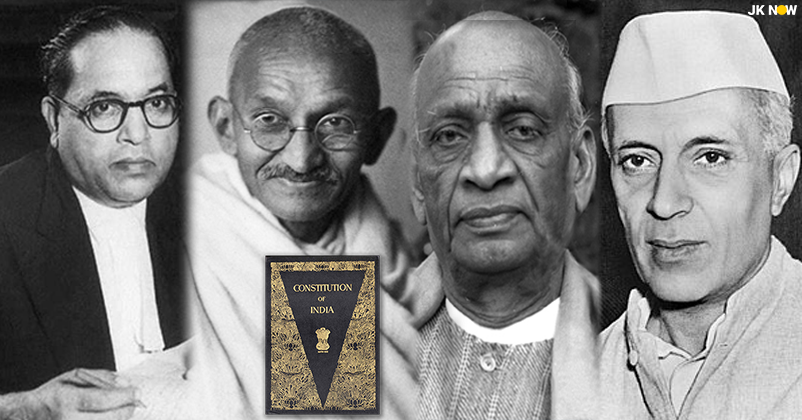
MAHATMA GANDHI
Against philosophy of communism
“Their [Communist] philosophy, as they have declared it to me, I cannot subscribe to.”1 (Mahatma Gandhi letter to ML Shah on 26 January, 1941)
Faith in Moscow
“What is more saddening about you [Communist] is that, instead of having faith in India and drawing inspiration from its unrivalled culture, you wish to introduce Russian civilisation here as if Russia was your motherland.”2 (Talk with communist workers on 8 June, 1947)
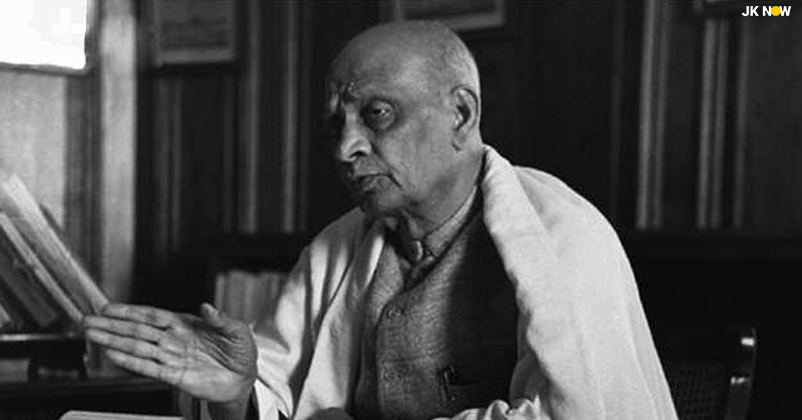
SARDAR PATEL
Communist menace
“I agree that the Communist menace is growing and the problem is becoming more difficult.”3 (Sardar Patel letter to Sampurnanand on 18 June, 1947)
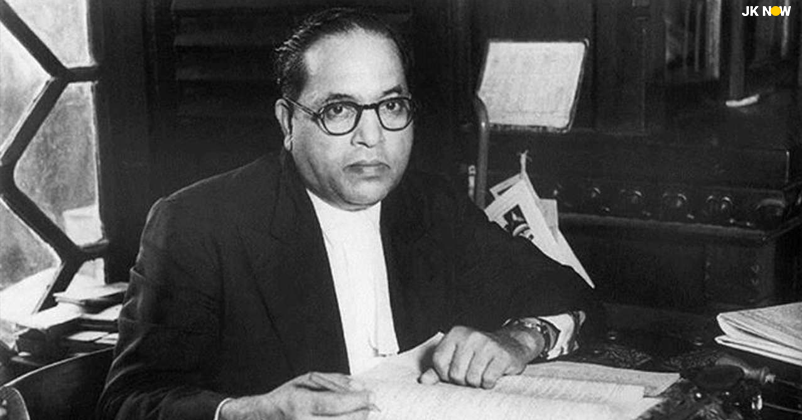 DR. BR AMBEDKAR
DR. BR AMBEDKARViolence and dictatorship
“The Communists say that there are the only two means of establishing communism. The first is violence. Nothing short of it will suffice to break up the existing system. The other is dictatorship of the proletariat. Nothing short of it will suffice to continue the new system.4 (Buddha or Karl Marx)
“The Communists themselves admit that their theory of the State as a permanent dictatorship is a weakness in their political philosophy.5 (Buddha or Karl Marx)
“Ambedkar, who believed in the workers’ right to strike, said that the weapon of strike should be used sparingly and to the advantage of the workers, and not for political objectives of the communist leaders. With his characteristic boldness he reiterated his view that the communists were impelled to resort to a strike more with political objectives than with the object of bettering the lot of the workers.”
“As regards the labor movement carried on by the Communists, he [Dr. Ambedkar] added that there was no possibility of his joining them. He declared that he was a confirmed enemy of the Communists, who exploited the laborers for their political ends.”
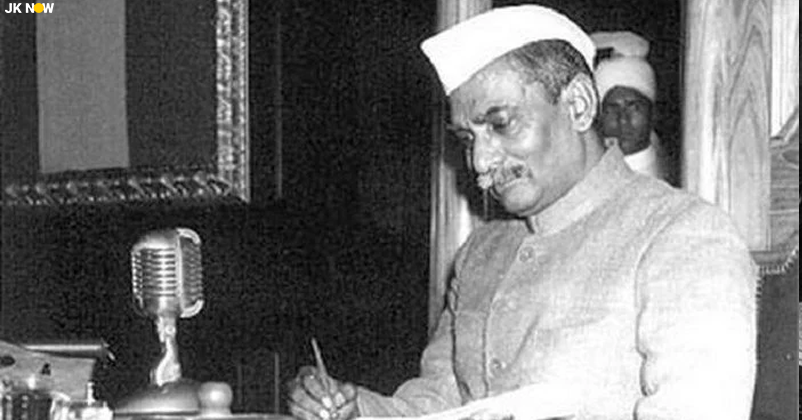
DR. RAJENDRA PRASAD
“It ought not to surprise anyone if the leaders of the Communist Party in India should seek to find justification for their support to the Pakistan demand of the All- India Muslim League in the Constitution of the U.S.S.R. and the writings of M. Stalin. But it is really surprising that Dr. Radha Kumud Mukherji, the President of the Akhand Hindustan Conference, should also find inspiration in the same sources and base his suggestions on the same model.”
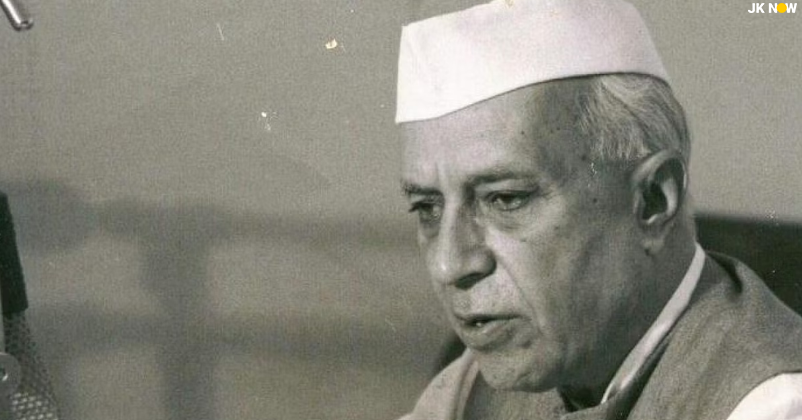
JAWAHARLAL NEHRU
Public opinion
“It is true that these days public opinion is generally very much against the Communists.”9 (Jawaharlal Nehru letter to Mahatma Gandhi on 31 January, 1946)
Indulged in riots, violence and creating unrest
“At the same time it has also to be kept in mind that the Communists have also often indulged in a lot of rioting. In this very month [January], in Kanpur, they resorted to violence as a result of which several of our people were injured.”10 (Jawaharlal Nehru letter to Mahatma Gandhi on 31 January, 1946)
“I am told that certain Communist organisations are indulging in violence in this province [Andhra Pradesh].”12 (Speech at a public meeting in Visakhapatnam on 14 March 1948)
“Information from other parts of the country indicated that the Communist Party’s policy in India had undergone complete change and deliberate violence was encouraged and sabotage of security services was feared.”14 (Jawaharlal Nehru cable to V.K. Krishna Menon on 11 April 1948)
“Some of the activities [of Communists] in the recent past have been far from legitimate and have created grave disorder. There has been open incitement for the collection of arms and violence, and sabotage has been feared.”15 (Jawaharlal Nehru letters to Chief Ministers on 15 April 1948)
“Communists of India are aiming to create unrest among the people and seize power by creating chaos in the country.”16 (Speech at a public meeting in New Delhi on 6 April 1948)
“As long as nationalism remained allied with the forces of progress, communism might make mischief in India, but could not have any vital influence on the trend of events.” (Jawaharlal Nehru’s minutes of the third meeting of the Commonwealth Prime Ministers at London on 12 October, 1948)
“The activities of the Communists in India have always been directed into destructive channels.”18 (Address at Kisan conference at Jaipur on 19 December, 1948)
“There is a lot of trouble from the Communists in different parts of the country and in some districts of the State.”19 (Speech at a public meeting at Hyderabad on 25 December 1948)
“Communist activities in India do not tend to build up anything but to disrupt everything - producing chaotic conditions and reactionary forces.”20 (Discussion with members of a committee of the Jogjakarta Republican Parliament at Jakarta on 12 June, 1950)
“The Communist Party of India has, during the past year, adopted an attitude not only to open hostility to Government but one, which can be described as bordering on open revolt.”21 (Question asked by Deshbandhu Gupta to Jawaharlal Nehru regarding threatened railway strike and action against communist)
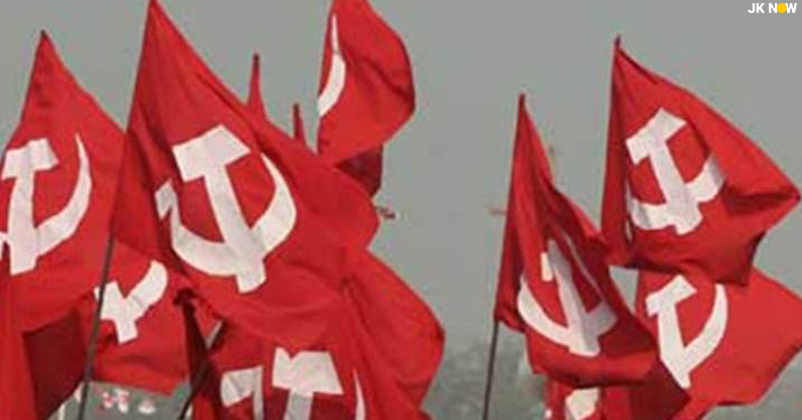
Policy of Communist Party of India
“If you talk of communism in terms of the Communist Party’s policies that is something, though it changes from time to time. I do not think personally that the Communist Party’s policy as such is going to work here in India.”22 (Proceedings of a press conference at New Delhi on 7 July, 1950)
Stupid party
Nehru, in a parliamentary speech had described the Indian Communist party as “the most stupid party among the Communist parties of the world,” not only utilised the full force of the governmental machinery against the Reds but also called upon the people to resist their call to violence.
Terror activities
In July, 1949, Nehru visited the storm-centre of Calcutta, where the Communists called on the masses to boycott a meeting he had planned to address. As Nehru started to speak, a bomb was thrown into the crowd, killing a policeman and two spectators and injuring others, including the bomb-thrower.24
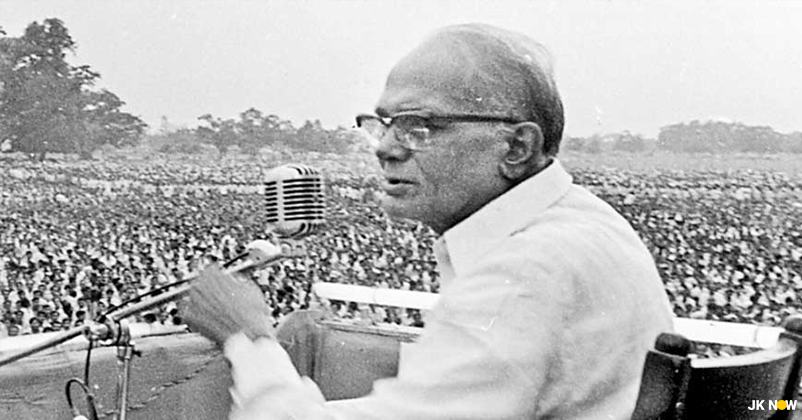
JAYAPRAKASH NARAYAN
Communist – laughing stocks
“The communist in this country, as elsewhere, have made themselves laughing- stocks by acting as puppets of Moscow.”25 (Speech delivered at Bombay (Mumbai) on 5 November, 1956)
Not loyal for India
“The CPI must convince the Indian people by its actions of its independence and loyalty.”26 (Speech delivered at Bombay on 5 November, 1956)
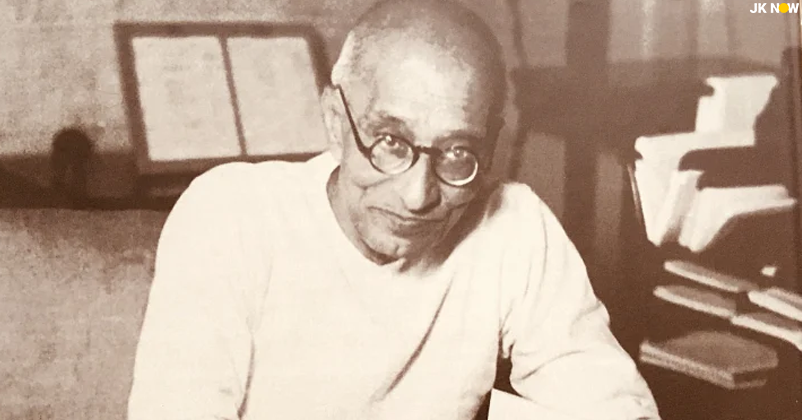 C. RAJAGOPALACHARI
C. RAJAGOPALACHARICommunist are enemy number one In the Madras State Assembly the then Chief Minister, C. Rajagopalachari, warned the Communists in opposition. “I am your enemy Number One,” he told them bluntly. “May I say you are my enemy Number One? That is my policy from A to Z.”27
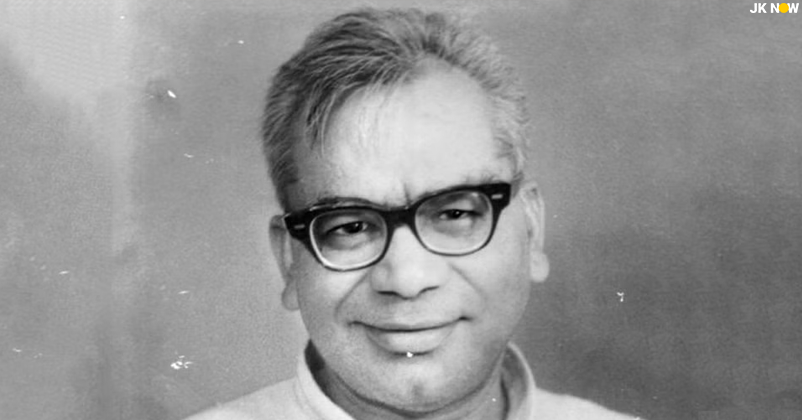 RAMMANOHAR LOHIA
RAMMANOHAR LOHIACommunism as evil
“I consider communism as very evil-as-evil as the status quo.”28
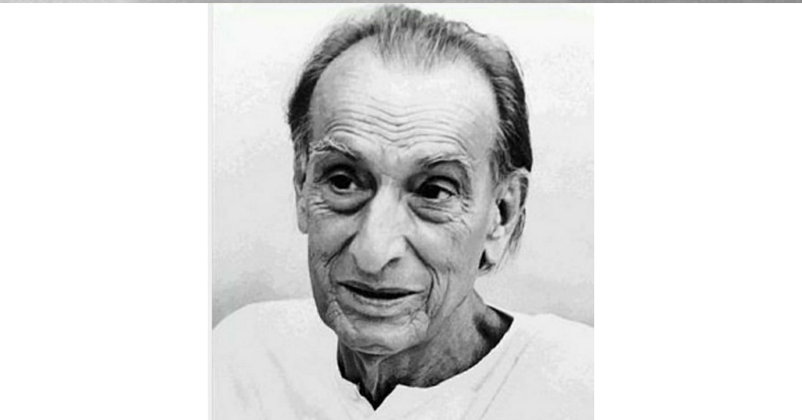 JB KRIPLANI
JB KRIPLANI“We must remember the usual communist tactics of keeping up constant tension and constant irritation, to create uncertainty and confusion.”29
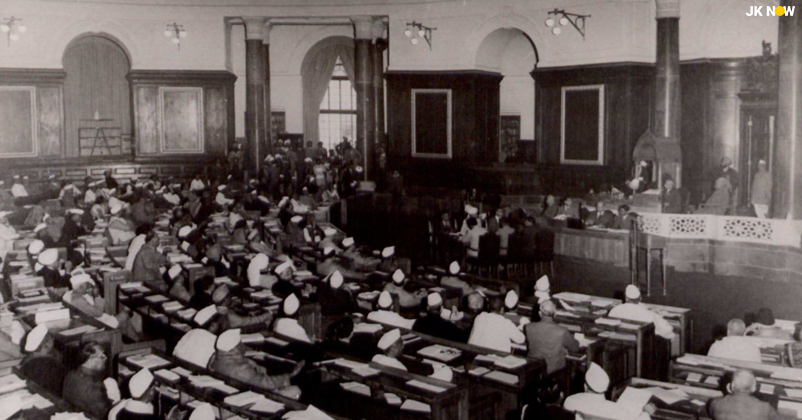 Constituent Assembly of India
Constituent Assembly of IndiaDakshayani Velayudan, “The so-called Communists, instead of emancipating the Harijans, are only exploiting them..... I think the Communist Party is getting its inspiration from some outside quarter and so it is not for us to accept the views of the Communists” 30
Gopinath Bardoloi,
“I want specially to stress the mischief from which the Province is suffering and is likely to suffer from the communist activities in that part of the country. You know that an attempt is being made by this party to connect themselves with people of the same profession in Burma and China. Already a recrudescence of violent actions has taken place;-and if you go through the newspapers you will see that the tactics they have adopted at Dibrugarh are the same as they adopted in Calcutta, namely trying to occupy places of Government by violent means like acid-throwing, bombing, hand-grenade, pistol-firing etc.
Now, the police might show you one way of putting down some of these activities; but my point of view is-and I hope this view is shared by all of us-that if we want to root out the evils of communism it can ever be done with the police force alone. We have to take recourse to ameliorative measures to raise the standard of the people and give them training in a sort of self-government which I suppose is being preached by these communists also. That can be done only by having a very much more per capita expenditure on the people than the Province is able to give today from its finances.
GOVERNMENT ACTIVITIES AGAINST COMMUNIST PARTY OF INDIA
How to Treat Communists
“So far as Communists are concerned, they are actually outside the Congress and we cannot, as a Congress organisation, do anything more to them. As Government, we have to treat them as any other group which may offend against the law.”32 (Jawaharlal Nehru letter to B.G. Kher on 5 January 1948)
“I am sorry you [Hare Krushna Mahtab] are having some trouble with the Communists and the Rulers of the States. I hope you will deal with the Communists individually if they give trouble.”33 (Jawaharlal Nehru letter to Hare Krushna Mahtab, 8 June, 1948)
“Communists have been misbehaving in many places and action had to be taken against them.”34 (Jawaharlal Nehru letter to Sri Krishna Sinha on 8 June 1948)
Ban on Communist Party of India
At its second Congress held in Calcutta in February 1948, the Communist Party of India adopted a policy of securing the overthrow of the Congress Governments at the Centre and in the provinces by violent means. The communists then organised strikes and incited violence in cities and in some rural areas like Telengana in Hyderabad State. The Government of India banned the C.P.I. and arrested its leaders.
Communist activities in South India led to the banning of their party in the State of Madras on 26 September 1949. In the Hyderabad State the communists organised peasants into guerilla forces and took possession of land and properties. They burnt food stocks, police stations, post offices and private houses. In Telengana particularly they ushered in a reign of terror. Numerous cases of political murders and dacoities in Nalgonda District in 1949 were reported on 10 January 1950.
CONSTITUTION & INDEPENDENCE OF INDIA
Red flag instead of National Flag
Dr. Syama Prasad Mookerjee, “The Communist party will have the red flag where they rule or the Socialist party will have their red flag where they rule or the Congress will have their own flag flying where they govern. Nobody has suggested that. Let there be one flag for the whole country.”
“When the people were being educated by Gandhi in methods of non- violent resistance, they asserted academically the right to use violence. Faithful to the letter of the Moscow directive of the Sixth World Congress, the Indian communists insulted on the sands of Chowpathy in Bombay (Mumbai) the national flag of the independent India yet to be born.”36
Against the Constituent of India
Dr. BR Ambedkar, “The condemnation of the Constitution largely comes from two quarters, the Communist Party and the Socialist Party. Why do they condemn the Constitution? Is it because it is really a bad Constitution? I venture to say ‘no.’ The Communist Party wants a Constitution based upon the principle of the Dictatorship of the Proletariat. They condemn the Constitution because it is based upon parliamentary democracy.”
“The newly elected central committee [of Communist Party of India] issued a statement condemning the draft constitution of India as drafted by the Constituent Assembly.
Not accepting the freedom of India
Jawaharlal Nehru, “As you know, even when Gandhiji was alive our communist comrades did not accept his teaching. Even after India became independent, they kept insisting that India was still a colonial country. They were unable to grasp a simple fact which the whole world accepted. It is only when the Soviet Union praised India for having won freedom that the communists in India accepted the fact. They are puppets in the hands of a foreign power and dance to their tune.”
INCLINED TOWARDS CHINA AND RUSSIA
Armed rebellion
Encouraged by the sweeping victorious of the communist armies in China, the local communist parties in India, Burma, Malaya, Indonesia and the Philippines switched their policies in favour of open armed rebellions in the first half of 1948.40
Following China
“The CPI should link up the revolutionary struggle in rural areas along with the lines followed in China.”41 (Second Congress of Communist Party of India at Calcutta in February 1948)
Jawaharlal Nehru, “Now it is a most extra ordinary situation that they [Communist in India] are praising Communist China and blaming us and the United States for helping us with equipment. It is really quite extra ordinary. In a way they have fallen into the Chinese trap.”42
Jawaharlal Nehru, “There are still some important members who continue to equivocate and find excuses for China in spite of all that has happened.”(Jawaharlal Nehru letter to V.R. Krishna Iyer on 30 October, 1962)
Jawaharlal Nehru, “I do not know what they [Communist in India] have in their minds or hearts, but many of them are probably in their hearts pro-Chinese.”44 (Speech at the meeting of the Congress Parliamentary Party Executive Committee on 7 November 1962)
On 21 October, 1959, Chinese troops opened fire on an Indian police patrol in Ladakh. Nine Indian were killed. The Secretariat of the CPI’s National Council issued a statement, which was a masterpiece of vagueness. Of course, it did not use one word which could even distantly regarded as critical of China. It was “of the opinion that there was no justification whatsoever for opining fire...... We hope that such incidents will not occur again and firing will not be resorted to under any circumstance.” The question who opened fire first was conveniently slurred over.
In India official reticence was broadly effective until the dramatic developments in Tibet in 1959, and the first Indian release of documents was made only in September of that year. Nevertheless the post-Bandung atmosphere of fervent but artificial Sino-Indian friendship was contaminated from time to time by journalistic speculations on the frontier situation and by serious enquiries in Parliament, although the fact that the main opposition was provided by the Communist Party helped to keep criticism of Peking (Beijing) to a minimum.
The Secretary of the West Bengal Communist Party (Marxist), Promode Das Gupta, in his document Revisionist Trend in CPI toed the CPC line that the proletariat in all countries must “smash the bourgeois State apparatus”, and demanded that the CPI must “follow the lead of the Chinese Party.”
In August 1964, in Tenali in Andhra Pradesh, the Peking faction decided to form a new Communist Parly of India. And in the Calcutta Congress in November 1964, a new party called the Communist Party of India (Marxist) was formed with P. Sundarayya, an extremist peasant leader from Telengana, as Its General Secretary with E.M.S. Namboodiripad and Jyoti Basu as members of the Politburo.
Correspondences between Indian Communist leader and Mao
BT Ranadive, the Communist Party’s General Secretary sent a message to Mao Tse- tung, “On behalf of the Central Committee of the Communist Party of India, I send you and through you to the people of China, our warmest greetings on the occasion of the formation of the People’s Government of China...... The Central Committee of our Party salutes the great Communist Party of China and its leader Mao Tse- tung on the occasion of its historic and world shaking victory.
The victory scored by Communist Party of China is victory of Marxism, Leninism, of the Stalinist line. The Communist Party of China and its great leader, Mao Tse-tung have demonstrated once more the invincible power of Marxism-Leninism...... ‘Long Live Comrade Mao Tse-tung!’ ‘Long Live the Communist Party of China!’ ‘Long Live the Fighting Unity of the Chinese and Indian People’!”
Mao Tse-tung replied on 19 October, 1949, “I firmly believe that relying on the brave Communist Party of India and the unity and struggle of all Indian patriots, India will certainly not remain long under the yoke of imperialism and its collaborators. Like free China, free India will one day emerge in the socialist and People’s Democratic family.”
Statement of the editorial board of ‘Communist’ on A Lasting Peace, For a People’s Democracy, on 27 January, 1950
The Andhra Communist Party Secretariat had, in a thesis, maintained that Chinese methods were best suited for capturing power in India and that Indian Communist Party had to learn a god deal from Mao-Tse-tung.